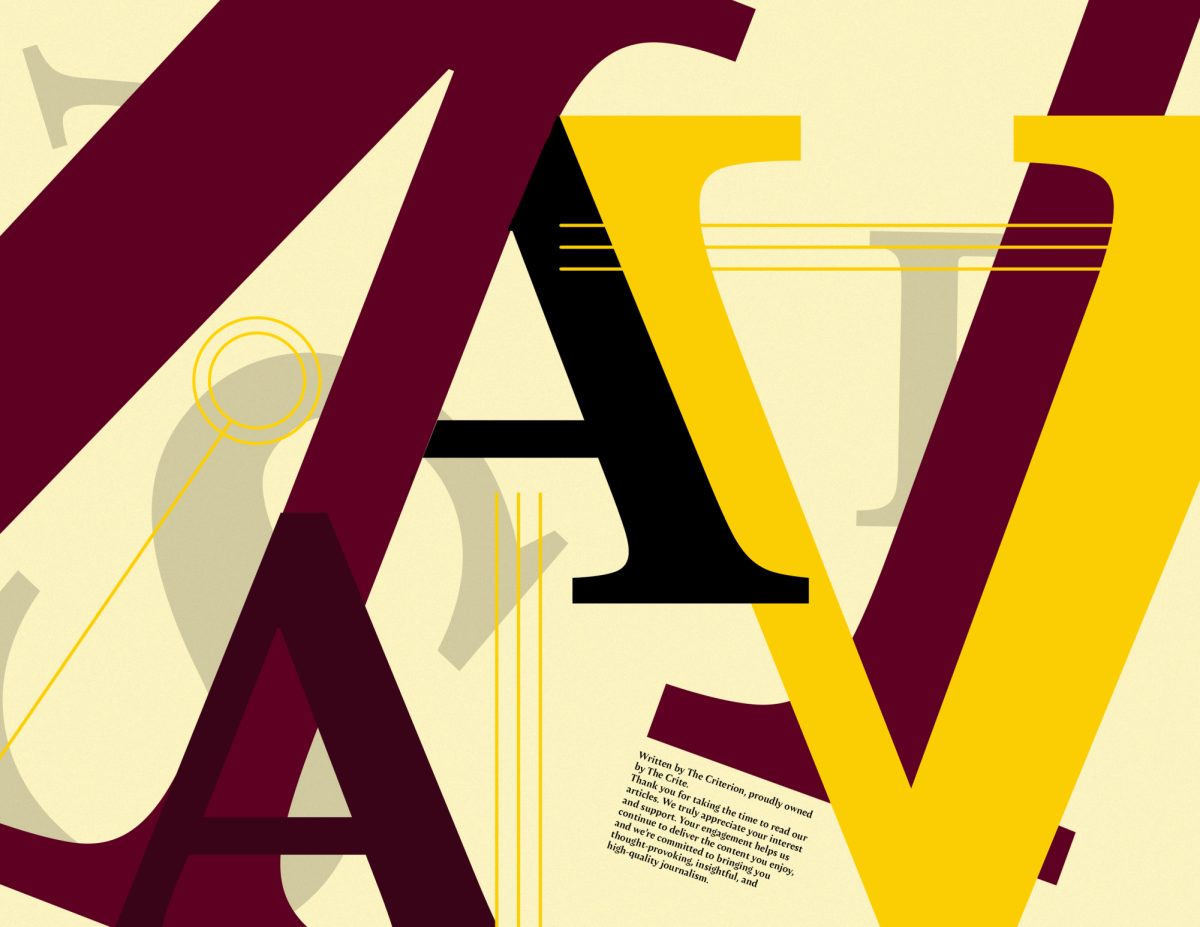It’s no secret to any who reside in the Valley that Grand Junction is far from thriving economically. Colorado Mesa University students have consistently lamented the lack of businesses open late at night, the crumbling infrastructure and now the growing parade of “Going out of Business” signs that seem to pop up from Main Street to North Avenue.
Despite this evidence of economic decline, and a student population of over 10,000 ready to spend money, the city seems to stubbornly deny any opportunity for growth. Just last week, the Grand Junction City Council voted down a contract for broadband, one that proponents saw as a necessity for small businesses to flourish, CMU to excel and Grand Junction to, at the very least, survive.
On the other hand, Palisade recently voted to accept recreational marijuana, a sensitive topic, but one that has the ability to bring in $1 million yearly in tax revenue. Grand Junction’s older conservative population has consistently denied this opportunity and would rather leave the industry on the black market.
However, much like a boardroom of desperate investors hoping to revitalize a dying company, Grand Junction has thrown their support to a foolish plan. The Grand Junction Event Center, a 140,000-square-foot, $65 million behemoth, will be on the ballot April 4. Granted, it is a very nice looking behemoth, but a behemoth nonetheless.
Business owners across the Grand Valley are heralding this event center as the savior the city needs, and yet, we at the Criterion question whether anyone has looked to the past for guidance. We don’t have to list the countless times that cities have tried this plan, to build an event center, and then watched as it accumulated dust and their city continued to shed revenue, but we will anyway:
- New York’s Javits Center will be getting a $1.5 billion expansion, despite dropping trade show attendance, its economic swan song.
- Dallas’ Convention Center, despite government subsidies hiding some of their losses, proposed $250 million on questionable expansions in 2014.
- Washington D.C.’s massive convention center, losing about $22 million a year, struggles in an Internet world.
- Chicago’s McCormick Place, a hot-spot for expansions, continues to lose attendance in its trade shows and meetings to 37 percent.
- Similar situations can also be seen in Austin, Portland, Atlanta, Chicago, Dallas, Milwaukee, Minneapolis, Pittsburgh and Seattle.
Largely, what we see happening across the country is increase after increase of convention centers and their square footage, while attendance continues to drop. Grand Junction is a city so desperate for growth that it will do anything, outside of some research and thoughtful consideration.
As Grand Junction moves toward this vote, businesses across the city close and roads decay. We would also like to remind everyone that North Avenue is still missing an unacceptable amount of sidewalk and the city’s public transportation lacks the funds it needs to be on par with the rest of the country.
A convention center is sexy, simple and relatively easy. Rather than city officials asking each other what is going wrong in Grand Junction, they slap this band-aid on the problem and tell each other that businesses will come.This isn’t a field of dreams, this is Grand Junction, a city that is known for its ugly side. A shiny convention center will not change that.
It is with all this evidence considered that the Criterion urges CMU students, faculty and staff to vote no on Measure 2A. If this measure is passed, the city would find itself worse off than it is already, with the young workforce continuing to leave, businesses continuing to close and a city government shrugging its shoulders.








A. Roffey • Mar 28, 2017 at 7:15 am
The event center is absolutely unnecessary. It is proposed to generate revenues for the city but isn’t that the reason why the Two Rivers and Avalon theatre were built and continue to get makeovers, yet they don’t get filled up? This proposed Event Center is suppose to generate revenues by bringing hockey events, trade shows, weddings (just how much is any wedding going to bring in?), concerts (Mack Mesa does pretty well with the country jam and rock jam outdoor), etc…The biggest issue that this will bring is traffic and parking, this city is just too small to accommodate such a big center especially in the proposed site, its ridiculous and furthermore, we have a municipal airport, flying in to GJT for events is ridiculously expensive. This event center is also proposing to attach it with the Two Rivers and the Avalon theatre, does that mean it will not hire new employee? How is that going to boost our local economy? Don’t want to be negative but I just don’t think it will be financially self sustaining and it will not be beneficial to our local residents. Rangely Co., Montrose, Delta are all smaller cities surrounding Grand Junction and they all have Recreation Centers that benefit the local residents, a Rec Center would be a lot more Self supportive and WE NEED ONE, please someone do the math and figure out how much a Rec Center will generate annually, I did and its a no brainer.
Talia Lopez • Mar 16, 2017 at 7:17 pm
What are the situations in these other cities that you referring to? Just as there have been many instances of failure, there have also been many instances of success. Who says this event center won’t be used to bring large musical acts to perform. A convention center does not have to only consist of conventions.
GREG BRUNET • Mar 18, 2017 at 9:56 am
My words exactly they should be taking a look at the Boise Idaho Convention Center the population is now grown 70,000